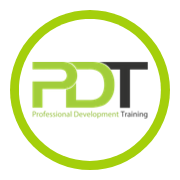Scrum Developer Certified (SDC™) is an entry level certification for Scrum Team members and those who interact with any Scrum Team. The objective of this certification is to ensure that Agile Scrum Team members know enough about Scrum to effectively contribute to a Scrum project.

Book with PD Training and receive training that prepares you for a:
Globally Recognised Certification
From :
A world leader in Agile SCRUM, Lean Six Sigma, Prince2 and Project Management
PD Training is an IATO & REP in the USA, Australia, New Zealand, Philippines, Malaysia, Singapore, Hong Kong, Nigeria and the UK
Using :
Authorised Curriculum
Lots of Practical activities
Details and theory, provided clearly with supporting imagery
Your Learning Outcomes
In this course you will:
Readily recognise, define, and work with the concepts, advantages, and challenges of the Agile Scrum Framework.
Prepared to understand and function appropriately as members of Scrum Teams in their organisations and help their organisations adopt the Scrum Framework. Furthermore, students will develop an understanding of the other roles in Scrum.
Participate in role plays, during which they carry out an Agile Scrum project.
Gain knowledge pertaining to and the ability to anticipate issues related to the practical implementation of Scrum.
Be armed with the proper tools to address, resolve, and take the lead on Scrum issues in their organisations.
Be provided access to an online exam. After passing the exam, the student's certificate will be mailed to him or her.
Course Outlines
Scrum Developer Certified (SDC™) is an entry level certification for Scrum Team members and those who interact with any Scrum Team.
The objective of this certification is to ensure that Agile Scrum Team members know enough about Scrum to effectively contribute to a Scrum project.
Course Outline for Scrum Developer Certified Training
Topic 1
Introduction to SCRUM
Overview of Scrum
History of Scrum
Why Use Scrum
Scalability of Scrum
Purpose of the SBOK Guide
Framework of the SBOK Guide
How to Use SBOK Guide
Scrum Principles
Scrum Aspects
Scrum Processes
Scrum Vs Traditional Project Management
Topic 2
Principles
Roles Guide and Empirical Process Control
Self-Organisation
Collaboration
Value-Based Prioritisation
Time-Boxing
Iterative Development
Scrum Vs Traditional Project Management
Topic 3
Organisation
Introduction to Organisation
Roles Guide
Scrum Project Roles
Product Owner
Scrum Master
Scrum Team
Scrum in Project, Programs, and Portfolios
Summary of Responsibilities
Scrum Vs Traditional Project Management
Popular HR Theories and their Relevance to Scrum
Topic 4
Business Justification
Introduction to Business Justification
Value-driven Delivery
Importance of Business Justification
Business Justification Techniques
Continuous Value Justification and Confirm Benefits Realisation
Scrum vs Traditional Project Management
Topic 5
Quality
Introduction to Quality
Quality, Scope, and Business Value
Acceptance Criteria and Prioritised Product Backlog
Quality Management in Scrum
Quality Control and Quality Assurance
Scrum Vs Traditional Project Management
Topic 6
Change
Introduction to Change
Overview
Change in Scrum
Integrating Change
Change in Portfolios and Programs
Topic 7
Risk
What is Risk
Risk Management Procedure
Risk Prioritisation, Mitigation and Communication
Minimising Risks through Scrum
Risks in Portfolios and Programs
Scrum vs Traditional Project Management
Topic 8
Initiate
Initiate - Introduction
Create Project Vision
Identify Scrum Master and Stakeholder(s)
Form Scrum Team
Develop Epic(s)
Create Prioritised Product Backlog
Conduct Release Planning
Topic 9
Plan and Estimate
Plan and Estimate - Introduction
Create User Stories Process
Approve, Estimate, and Commit User Stories and Create Tasks Processes
Estimate Tasks Process
Create Sprint Backlog Process
Topic 10
Implement
Implement - Introduction and Create Deliverables
Conduct Daily Standup
Groom Prioritised Product Backlog
Topic 11
Review and Retrospect
Review and Retrospect - Introduction
Convene Scrum of Scrums
Demonstrate and Validate Sprint
Retrospect Sprint
Topic 12
Release
Release - Introduction
Ship Deliverables
Retrospect Project
PD Training is a leading provider of professional development training with the world class post-course reinforcement framework
With offices in Australia, New Zealand, USA and Singapore, PD Training is a world class provider of staff training solutions with a focus on Professional Development Skills and Six Sigma training. We have around 1000 trainers across Australia, New Zealand and the USA provide the best possible adult education and the world's leading post-course reinforcement system
© 2025 coursetakers.com All Rights Reserved. Terms and Conditions of use | Privacy Policy